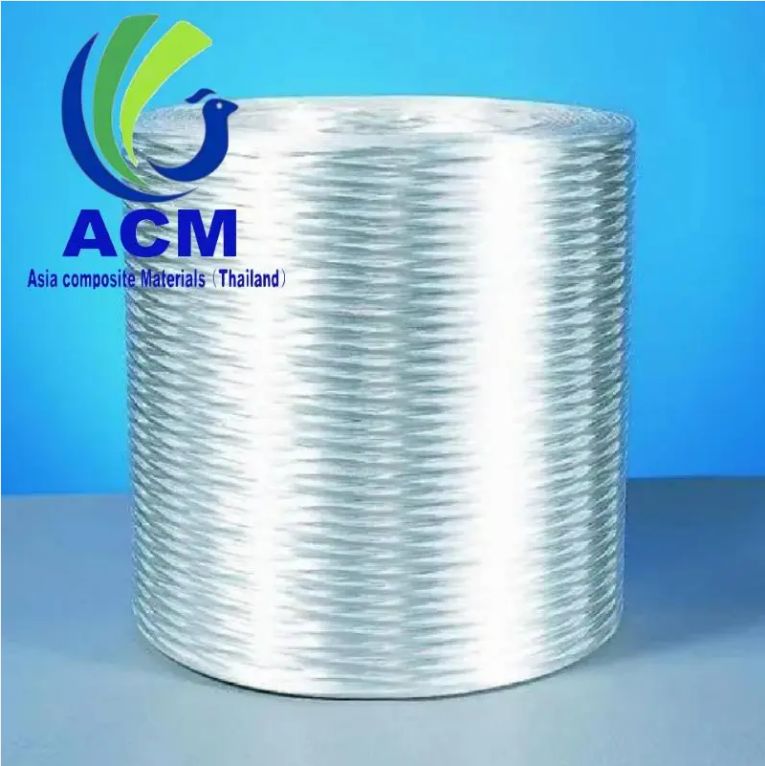ECR-glass (Electrical, Chemical, and Corrosion Resistant glass) direct roving is a type of glass fiber reinforcement material that is specifically designed to provide enhanced electrical insulation, chemical resistance, and corrosion resistance properties compared to traditional E-glass (Electrical glass) fibers. ECR-glass is often used in applications where these specific characteristics are crucial, such as in environments where exposure to harsh chemicals or corrosive agents is expected.

Asia composite materials (Thailand)co.,Ltd
The pioneers of fiberglass industry in THAILAND
E-mail:yoli@wbo-acm.com Tel: +8613551542442
Key features of ECR-glass direct roving include:
1. Electrical Insulation: ECR-glass fibers have excellent electrical insulation properties, making them suitable for applications in which electrical conductivity needs to be minimized. They are commonly used in industries like electrical engineering and electronics.
2. Chemical Resistance: ECR-glass is engineered to have improved resistance to various chemicals and acids. This characteristic makes it a preferred choice for applications where exposure to corrosive substances is a concern, such as in chemical processing equipment, storage tanks, and pipelines.
3. Corrosion Resistance: ECR-glass fibers are more resistant to corrosion compared to standard E-glass fibers. This feature is particularly important in applications where the material will be exposed to moisture, chemicals, or other corrosive elements over time.
4. High Strength: ECR-glass direct roving maintains the inherent high strength and stiffness properties of traditional glass fibers, ensuring the mechanical integrity of the composite materials it reinforces.
5. Compatibility with Resins: ECR-glass fibers are compatible with various resin systems, including polyester, vinyl ester, and epoxy resins. This compatibility allows manufacturers to create composite materials with desired properties for specific applications.
Applications of ECR-glass direct roving include:
Chemical Storage Tanks: ECR-glass reinforcement is used in the construction of chemical storage tanks, pipes, and containers to provide resistance against the corrosive effects of the stored chemicals.
Pulp and Paper Industry: ECR-glass is used in equipment and structures within the pulp and paper industry, where exposure to chemical processes is common.
Environmental Protection: ECR-glass is utilized in the manufacturing of air pollution control equipment, scrubbers, and wastewater treatment systems due to its corrosion resistance.
Oil and Gas Industry: ECR-glass is employed in the oil and gas sector for applications such as offshore platforms, pipelines, and equipment exposed to harsh environments.
Electrical and Electronics: ECR-glass is used in electrical insulating materials, electrical laminates, and other applications requiring high electrical resistance.
ECR-glass direct roving offers a specialized solution for industries and applications that demand both high mechanical strength and resistance to chemical and corrosive environments. It is an example of how material engineering can be tailored to specific needs, resulting in improved performance and durability.
Post time: Aug-15-2023




